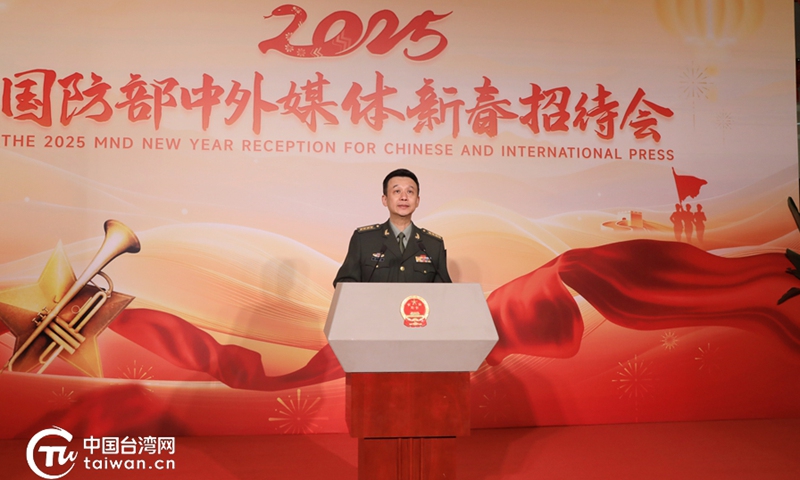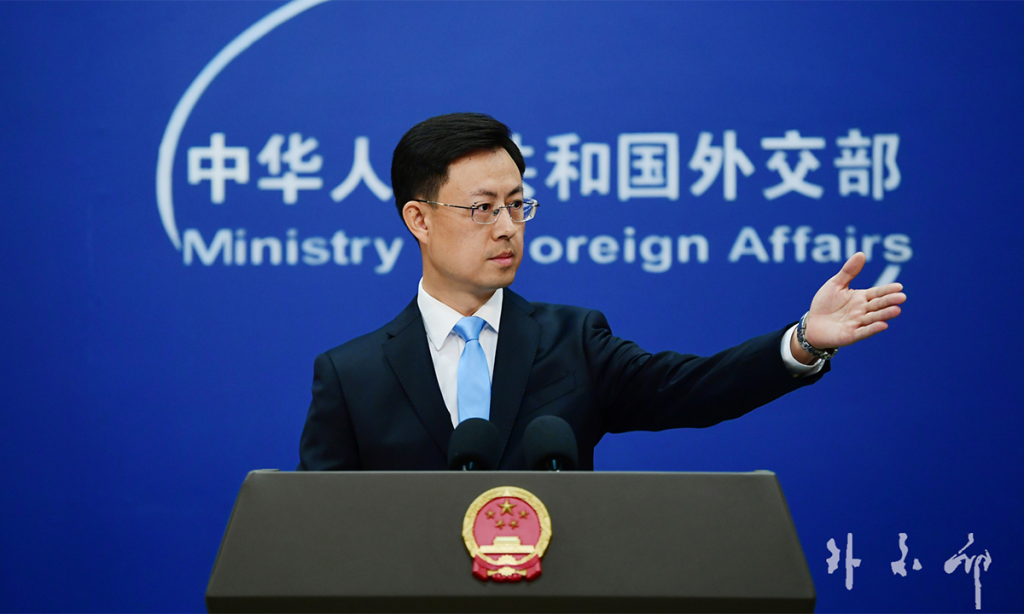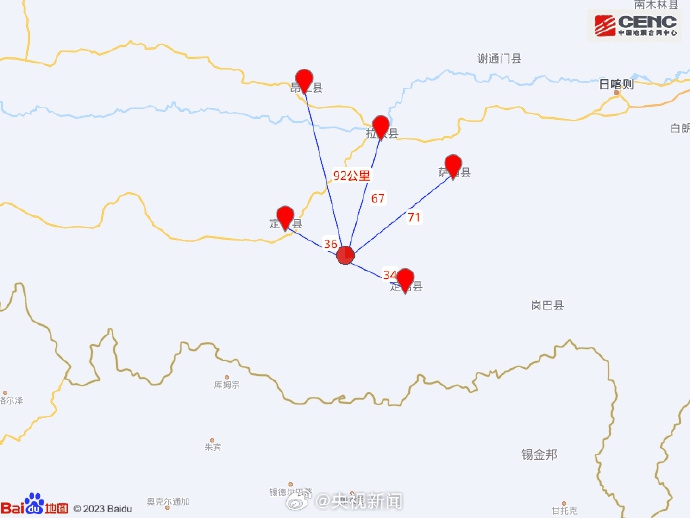Special arrangement at China’s defense ministry media reception holds deep implications

During the 2025 Ministry of National Defense (MND) New Year Reception for Chinese and International Press held on Friday, when asked whether "the special arrangement of a US piece for the concert signifies a positive expectation for US-China military relations," Wu Qian, spokesperson for the ministry, told the Global Times that the key to developing stable military relations between the two countries is mutual respect for each other's core interests, which is a necessary prerequisite for the stable development of military relations.
This year's media reception for the MND was held for the first time at the headquarters of the Military Band of the Chinese People's Liberation Army (PLA), featuring a speech by Ye Jiang, major general and deputy director of the Office for International Military Cooperation of the Central Military Commission.
This media reception was notable for its unique and innovative arrangements, from the invitation card to the event setup. In addition to activities like simulated shooting at the venue, there was also a tour of the dormitories. Upon entering the dormitory, the first thing that caught the eye was the neatly folded quilts on the beds, shaped into standard "tofu blocks" — square, tidy, and wrinkle-free.
Inside the wardrobes, military hats and uniforms were arranged in an orderly manner. The level of cleanliness made a strong impression on journalists from both China and abroad. What stood out even more was the sound of a piano coming from the far end of the long dormitory corridor. In a room around the corner, a member of the military band, with his back to the door, was playing "Jasmine Flower", a traditional Chinese folk song, on the piano.
In addition, the media reception also featured a New Year concert themed "Horn of Peace and Friendship." Wu told the Global Times that the concert's arrangements emphasized both a "military flavor" and "soldier spirit," incorporating Chinese military songs. At the same time, it also highlighted internationalism, featuring songs from other countries and regions including a Russian song and a Tanzanian song.
Wu said that the selected pieces for the concert were highly representative, noting "We chose songs from a range of representative countries, including Russia, classic compositions by renowned composers like Beethoven, and pieces from developing countries, such as those from Africa." The world is a vast garden, and a single flower does not make spring, while one hundred flowers in full bloom bring spring to the garden, Wu said.
We hope to use this broad representation to convey a belief to the outside world that the Chinese military is working hard to build a community with a shared future for mankind, Wu said.
For a long time, China-US military relations have been a focal point of global attention. The concert also featured a US song. In response to a question from the Global Times about whether this special arrangement reflected a hopeful expectation for China-US military relations, Wu said that in the new year, China hopes that China-US military relations can develop in a healthy and stable manner, following the guidance of the heads of state of both countries, on the path of mutual respect for each other's core interests and major concerns.
Wu added that the development of stable military relations requires not only the efforts of one side, but also the joint efforts of both sides. Most importantly, it is essential to mutually respect each other's core interests, as this is a necessary prerequisite for the stable development of military relations, he noted.
In the background footage of the military band's performance, previous exchanges between the Chinese military and countries such as Russia and Brazil were highlighted. When asked whether the Chinese PLA would engage in more overseas cooperation with the militaries of other countries in the future, Wu responded that in 2024, many Chinese military delegations traveled abroad to engage in exchanges with militaries from various countries.
Such exchanges will become even deeper and more extensive in the new year, Wu said, adding that the Chinese military looks forward to developing friendships with the armed forces of all countries, fostering cooperation, and contributing to a more harmonious global community.
The Chinese military is committed to building a world-class military and needs to increase global engagement, convey friendship and goodwill, and promote exchanges and cooperation, Wu added.




